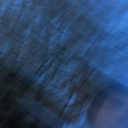This melody is a combination of this expression: [expr $f1*(($f1>>$f2|$f1>>$f3)&$f4&$f1>>$f5)] and that expression: [expr sin(23.14159$f1/64)$f2+sin(43.14159*$f1/64)$f3+sin(83.14159*$f1/64 )$f4+sin(163.14159*$f1/64 )$f5+sin(323.14159*$f1/64 )*$f6] (more or less the sinesum message). Its one circle of a loop with 512 steps (8x64 step):
-
Multislider algorhytmic melodies
-
@Jona Very nice! I wonder how one goes about finding interesting formulas, is it just trial and error?
-
@weightless thanks. thats a question i ask myself too. with a sinwave and its harmonics you can get interesting polyrhytmic results, that was what i tried first. then i found this site: http://countercomplex.blogspot.de/2011/10/algorithmic-symphonies-from-one-line-of.html played with examples and changed parameters. so with those examples it is more or less try and error, stilll learning the expressions. another interesting thing is to morph different parameters differently in time. and its scaled afterwards.
-
@Jona Thanks, I need to study your patch because I don't really understand what the expr is doing right now. Some of the sounds in your link are outstanding.
https://forum.pdpatchrepo.info/topic/10798/setting-expr-formula-dynamically/20
This is another way I read about of using simple chaotic formulas that feed into themselves to create evolving patterns. With the right quantisation the results can be interesting, although with less variation in the long run as far as I can tell. -
@weightless thanks, i have to admit that the sounds from my examples so far are only samples from this gm library ( but i like them): http://midkar.com/soundfonts/ its just a midi sequencer. i have to clean up the patch again that its more transparent, the expression is in the pd motion subpatch in the slider_motion abstraction. but basically the expression generates the pitch if it gets the stepnumber.
-
same expressions, different parameters:
-
two voices with different parameters:

